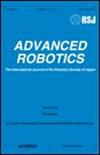对话机器人共情反应生成的双变分生成模型及辅助检索
IF 2
4区 计算机科学
Q4 ROBOTICS
引用次数: 0
摘要
从2018年到2021年,他担任APSIPA信号与信息处理交易的主编。Kawahara博士是APSIPA的主席,ISCA的秘书长,IEEE的会员。本文章由计算机程序翻译,如有差异,请以英文原文为准。
Dual variational generative model and auxiliary retrieval for empathetic response generation by conversational robot
Empathy in human-robot conversations aims to endow the robot with the ability to comprehend user emotion and experience, and then respond to it appropriately. Generally, empathy is embodied in the aspects of both contextual understanding and affective expression, which occur when there exist content and emotion consistencies between context and response. However, previous studies only focus on either aspect. In this paper, we propose a dual variational generative model (DVG) for empathetic response generation to achieve both. Specifically, we integrate an emotion classifier and a variational autoencoder (VAE) into a dual response and context generative model to learn the emotion and content consistencies efficiently. DVG utilizes VAE to mimic the process of context/response understanding. In addition to the generative model, our model can effectively switch to another retrieval system as a fallback solution. Automatic and human evaluations on Japanese and English EmpatheticDialogue datasets demonstrate the effectiveness of our method for empathetic response generation. Furthermore, we evaluate our model's ability in general response generation, which is not specific to empathetic but also chitchatting dialogue system. GRAPHICAL ABSTRACT
求助全文
通过发布文献求助,成功后即可免费获取论文全文。
去求助
来源期刊

Advanced Robotics
工程技术-机器人学
CiteScore
4.10
自引率
20.00%
发文量
102
审稿时长
5.3 months
期刊介绍:
Advanced Robotics (AR) is the international journal of the Robotics Society of Japan and has a history of more than twenty years. It is an interdisciplinary journal which integrates publication of all aspects of research on robotics science and technology. Advanced Robotics publishes original research papers and survey papers from all over the world. Issues contain papers on analysis, theory, design, development, implementation and use of robots and robot technology. The journal covers both fundamental robotics and robotics related to applied fields such as service robotics, field robotics, medical robotics, rescue robotics, space robotics, underwater robotics, agriculture robotics, industrial robotics, and robots in emerging fields. It also covers aspects of social and managerial analysis and policy regarding robots.
Advanced Robotics (AR) is an international, ranked, peer-reviewed journal which publishes original research contributions to scientific knowledge.
All manuscript submissions are subject to initial appraisal by the Editor, and, if found suitable for further consideration, to peer review by independent, anonymous expert referees.
 求助内容:
求助内容: 应助结果提醒方式:
应助结果提醒方式:


